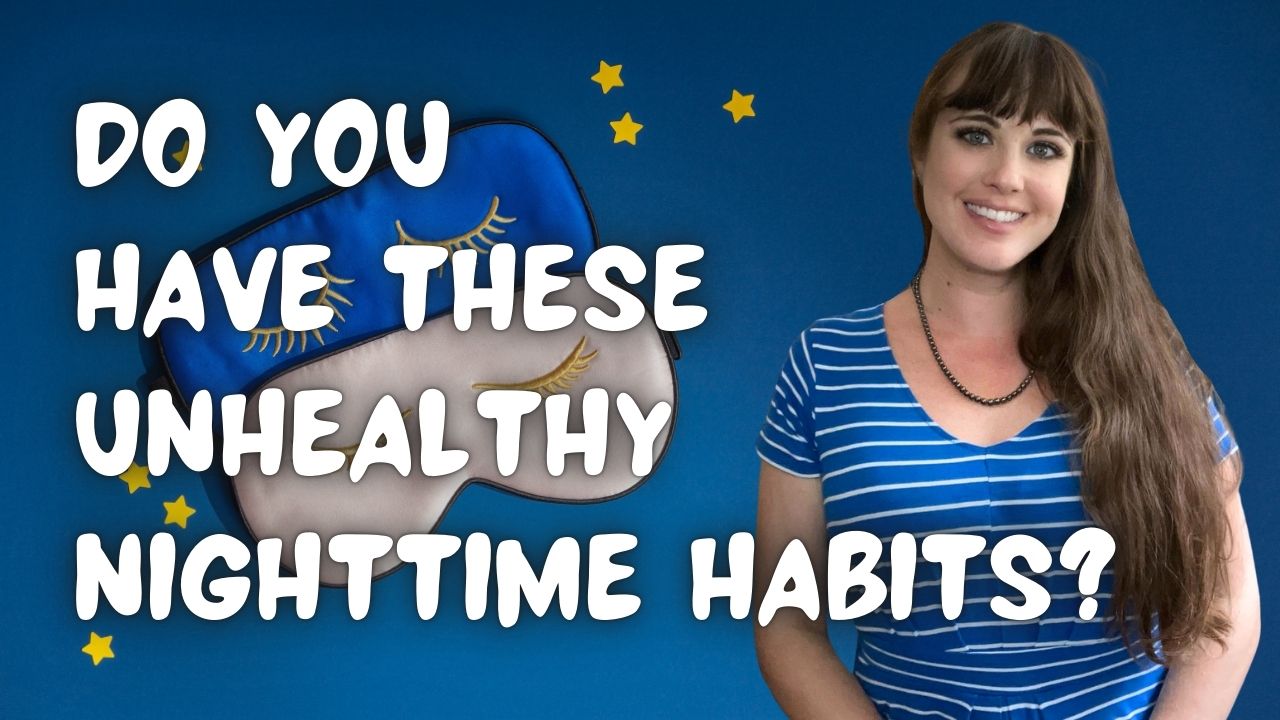
As an Amazon Associate I earn from qualifying purchases.
On the JJ Barnes Blog, I check out unhealthy nighttime habits that impact our mental health and sleep, and discover strategies for how to quit them.
We all have those nighttime habits that we know aren’t doing us any good, but it can be hard to break free from them. With 41% of adults worldwide reporting they experience a lot of stress, it’s likely these habits are contributing to the problem. From scrolling through our phones in bed to late-night snacking, I’m definitely guilty of these unhealthy habits that can have a significant impact on our mental health and sleep quality.

In this blog post, with help from the experts at Northerner, I’ll explore some of the most common unhealthy nighttime habits and discuss how they can affect your well-being. I’ll also share practical strategies and tips to help you break free from these habits and improve your sleep quality.

Unhealthy Nighttime Habits
Sky-high screen time
After a long day, it’s tempting to unwind by scrolling through our phones. However, some studies have shown that excessive screen time can have detrimental effects on our mental health and sleep quality.
Physically, excessive screen time can lead to eye strain, headaches, and pain in the neck, shoulders, and back. Additionally, some studies suggest that smartphones and social media can be dangerously addictive.
If you struggle with late-night phone scrolling, it’s important to be mindful of the potential consequences. The blue light emitted from screens can disrupt your natural sleep-wake cycle, leading to sleep issues or even insomnia.
Instead of reaching for your phone, explore alternative activities that can provide relaxation and long-term benefits. Consider engaging in hobbies like reading, journaling, crafting, or cooking. These activities can offer a more fulfilling and healthy way to unwind after a busy day.
Evening Coffee
A post-work coffee can be tempting, offering a quick energy boost for evening activities. However, many people overlook the potential long-term effects of excessive caffeine consumption.
Studies have shown that caffeine can remain in your system for up to 12 hours and can can mimic anxiety, potentially disrupting your sleep patterns and causing restlessness, nervousness, headaches, and sweating.
To avoid these negative consequences, consider healthier alternatives for a caffeine fix. A brisk walk or a power nap can provide a natural energy boost, while decaf coffee offers a satisfying caffeine-free option. By making these small changes, you can enjoy the benefits of a caffeine-free evening without compromising your sleep or overall well-being.
Too Much Sitting
After a long day, it’s tempting to relax on the sofa, but excessive sitting can have serious health consequences. Studies have linked sedentary lifestyles to vascular musculoskeletal issues, heart disease, obesity, and even cancer.
Beyond physical risks, prolonged sitting has also been associated with a higher risk of anxiety and depression. To counteract the negative effects of sedentary behavior, it’s essential to incorporate regular physical activity into your daily routine.
Start by making changes at work: Set timers to get up and move, use a standing desk, or walk with colleagues during meetings. In the evenings, continue to prioritize movement. Stand while watching TV, practice yoga, or dance while waiting for dinner.
By incorporating these simple strategies into your daily life, you can reduce the risks associated with excessive sitting and improve your overall health and well-being.
Evening Snacks
After a long day, it’s tempting to reach for convenient snacks instead of preparing a full meal. However, Studies have found that this habit can have detrimental effects on your health and well-being.
Ultra-processed snacks, often high in salt, sugar, and fats, can lead to changes in eating behaviors and diet quality. Excessive consumption of these foods can increase your risk of chronic diseases and contribute to weight gain.
Additionally, rapid fluctuations in blood sugar levels caused by unhealthy snacking can increase cortisol levels, leading to stress and anxiety.
To break free from this unhealthy habit, consider meal prepping. This involves preparing meals in advance, making it easier to choose healthy options and avoid the temptation of unhealthy snacks.
By incorporating meal prepping into your routine, you can improve your diet, reduce stress, and enjoy the benefits of a balanced and nutritious meal.
Bedtime Problem Solving
It’s easy to get caught up in work worries, even after a long day. Many of us find ourselves replaying problems and brainstorming solutions late into the evening, disrupting our relaxation and sleep.
This habit can have a significant impact on our mental health and stress levels. By ruminating on work-related issues, we can experience increased anxiety and difficulty falling asleep.
To break free from this cycle, consider journaling or keeping a notepad by your bed. Research suggests that writing down your thoughts and ideas can help alleviate stress and prevent you from feeling the need to address them immediately.
By incorporating these techniques into your evening routine, you can create a more peaceful and restful atmosphere, allowing your mind to truly unwind and recharge.
Conclusion
I know it can be tough to break free from unhealthy nighttime habits, but I believe in you! By implementing these strategies and making conscious efforts, you can significantly improve your mental health and sleep quality.
Remember, it takes time and consistency to change your habits, so be patient with yourself. Celebrate your successes along the way and don’t get discouraged by setbacks. With dedication and perseverance, you can create a healthier and more fulfilling nighttime routine. Let’s work together to make positive changes and sleep better tonight!
Amazon and the Amazon logo are trademarks of Amazon.com, Inc, or its affiliates.






